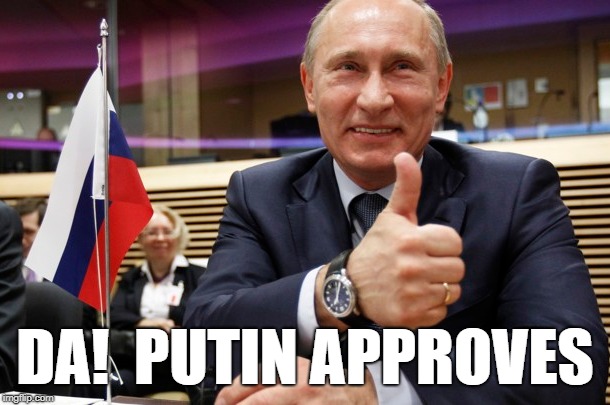volsrock1
Verified User

CIA offers buyouts to entire workforce to align with Trump priorities, WSJ reports
The CIA is offering all of its employees a buyout as part of a plan to realign itself with Donald Trump's policies


CIA offers buyouts to entire workforce to align with Trump priorities, WSJ reports
The CIA is offering all of its employees a buyout as part of a plan to realign itself with Donald Trump's policieswww.yahoo.com

All hail the king. The CIA is a highly educated and trained organization that has done amazing things to protect America. I suppose you cannot understand the dire ramifications of doing such a thing. Most of them are Repubs. We are not America anymore but Trumpsylvania. He decides everything. You are a sad and list soul helping sweep America go into the dustbin of history.Huzzah!
All hail the king. The CIA is a highly educated and trained organization that has done amazing things to protect America. I suppose you cannot understand the dire ramifications of doing such a thing. Most of them are Repubs. We are not America anymore but Trumpsylvania. He decides everything. You are a sad and list soul helping sweep America go into the dustbin of history.


Seems at worst a first-round elimination from the playoffs...
Is America supposed to be safer once we lose experienced people at the CIA and FBI?
Their experience is in abusing us and the Constitution.That depends on the "experience" of the individuals in question, doesn't it?
President Musk is determined to weaken the US in the face of our enemies.
CIA offers buyouts to entire workforce to align with Trump priorities, WSJ reports
The CIA is offering all of its employees a buyout as part of a plan to realign itself with Donald Trump's policieswww.yahoo.com
All hail the king. The CIA is a highly educated and trained organization that has done amazing things to protect America. I suppose you cannot understand the dire ramifications of doing such a thing. Most of them are Repubs. We are not America anymore but Trumpsylvania. He decides everything. You are a sad and list soul helping sweep America go into the dustbin of history.

The big thing is that the CIA runs a shadow government that runs America and runs the Empire, not giving a flying fuck about the Constitution.There have been numerous instances where long-serving CIA officers were convicted of spying for foreign adversaries. Here are a few notable cases:
These cases highlight the significant risks posed by insider threats within intelligence agencies and the severe consequences when such trust is breached.
- Aldrich Ames: Ames was a CIA officer who spied for the Soviet Union and later Russia. He was arrested in 1994 and convicted of espionage, having compromised numerous CIA assets. His actions led to the deaths of several Soviet agents working for the U.S.
- Alexander Yuk Ching Ma: A former CIA officer, Ma was sentenced to 10 years in prison in 2024 for conspiring to commit espionage for China. His espionage activities were revealed in court documents where he admitted to facilitating the exchange of classified information with Chinese intelligence.
- Kevin Mallory: Another former CIA officer, Mallory was convicted in 2018 for providing national defense information to China. He was sentenced to 20 years in prison in 2019.
- Jerry Chun Shing Lee: Lee, once a CIA case officer, was sentenced in 2019 to 19 years in prison for conspiring to spy for China. His activities contributed to the compromise of U.S. intelligence networks in China during the early 2010s.
@Grok
